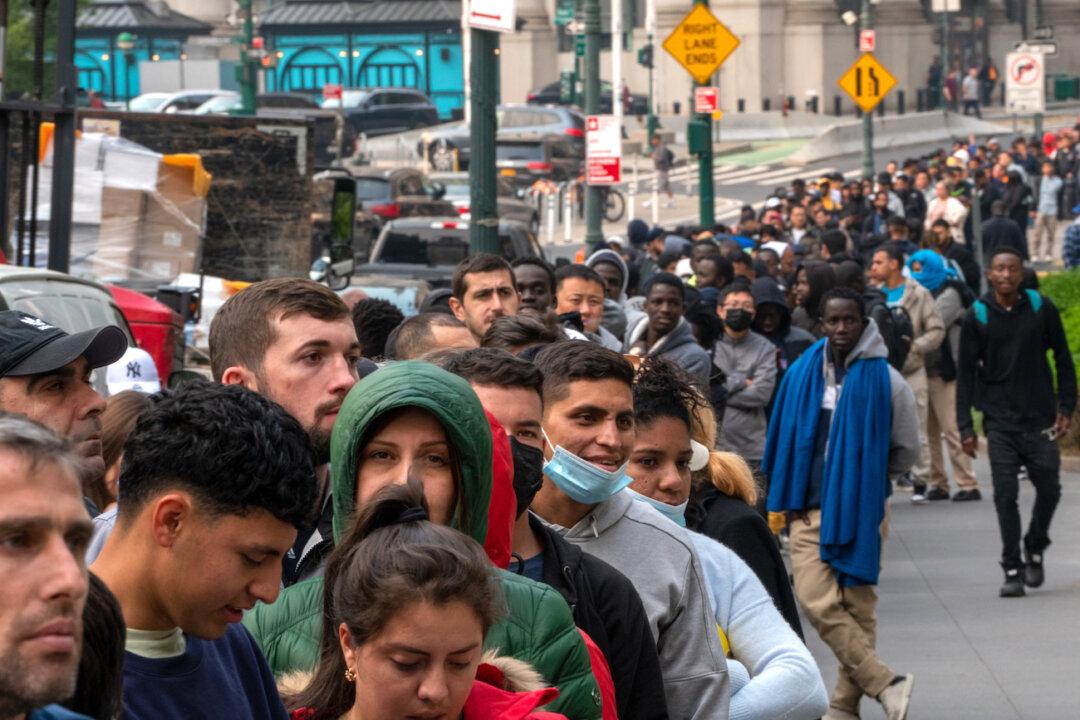New York would risk being unable to fund many services for its own citizens if it continues to pour money into accommodating the needs of the unending influx of illegal immigrants, the state’s top budget official warned over the weekend.
In an Oct. 28 memo to Gov. Kathy Hochul’s office, New York State Budget Director Blake Washington said the illegal immigration crisis is creating a widening financial burden that could put many budget items “at risk,” including those related to education, health care, and national security.





